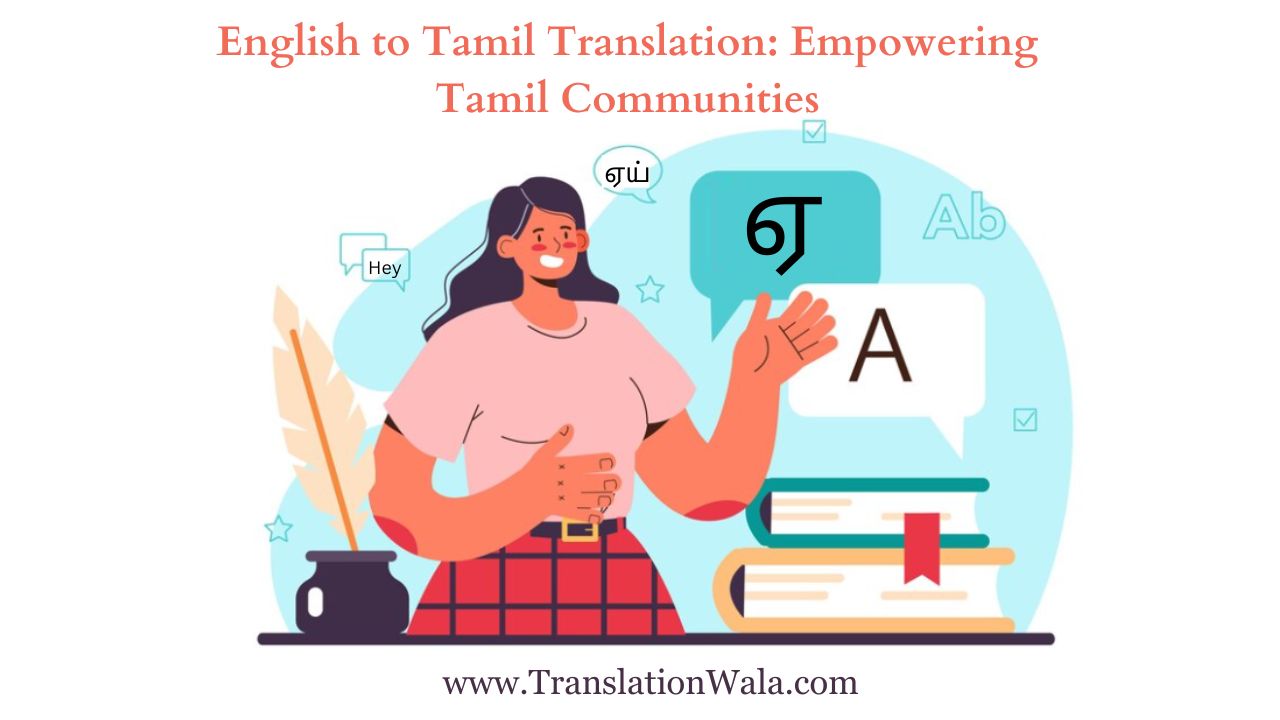Language is a very important part of how people and groups see themselves. There are a lot of active Tamil people in India and around the world, and the Tamil language is an important part of their culture and history. However, being able to speak other languages, especially English, well is often needed to get information and take advantage of chances. This is a unique problem: how can Tamil people get more power while still keeping their language? English to Tamil translation becomes an important tool for getting around in this complicated world.
Bridging the Communication Gap:
For many Tamil people, especially those who live in places where English is the main language, being able to speak and understand English well is necessary for school, work, and interacting with others. This gap is filled by translation from English to Tamil, which makes important papers, training materials, and information available in Tamil. This gives people the freedom to achieve their goals without giving up their language background. Imagine a young student in the rural area of Tamil Nadu who is excited to learn about new science discoveries. They can learn without having to fight with a language they don’t know by using translated textbooks and other school tools. This makes everyone feel more welcome and makes sure that language hurdles don’t hold people back from reaching their full potential.
Also Read: Effortless English to Kannada Translation: Your Guide to Accurate Communication
Preserving Heritage and Identity:
A community’s past, customs, and beliefs are stored in its language, which is more than just words. Tamil has a literature and cultural history that goes back hundreds of years, so keeping the language’s core is very important. English to Tamil Translation is an important part of keeping this tradition alive. By translating literary works, cultural texts, and historical records, these gems are made available to people in the Tamil community instead of just English speakers. So, people in the future will be able to learn about their ancestors, their customs, and the subtleties of their language. Imagine a lively tale session where grandparents tell their grandkids stories from old Tamil epics. The stories flow naturally, just like they have for generations, thanks to accurate versions. Sharing traditional information improves the community’s character and makes people feel like they belong.
Unlocking Economic Opportunities:
As the world becomes more connected, business prospects often depend on being able to communicate in more than one language. Translating from English to Tamil makes it possible for Tamil groups to join the global market. Marketing materials and product details can be translated by businesses to reach more people and get more customers. Legal papers and business contracts that are translated also make it easier for people to work together and spend across borders, which is good for both the community and the economy as a whole. Imagine a group of skilled craftspeople in a rural Tamil town showing off their homemade goods to the world through translated websites. This would give them new ways to make money and raise awareness of their culture. This gives people more control over their money, which raises living standards and makes the community’s future better.
Empowering Voices and Participation:
In addition to giving people access to knowledge and jobs, translating from English to Tamil is a very important way for Tamil groups to have their opinions heard. By translating news stories, government statements, and posts on social media, it makes sure that they are up to date on current events and can have useful conversations. This makes it easier for them to get involved in politics and gives them a fair voice to fight for their rights and interests. Imagine that a leader in the Tamil community spoke out about environmental problems in a public setting, and the people there understood what they were saying because it was translated correctly. This strong voice can bring about good changes and make sure that the community’s views are heard and taken into account.
Also Read: Empowering Global Communication: English to Telugu Translation for Businesses
Challenges and Considerations:
There is no doubt that English to Tamil Translation has benefits, but it’s also important to be aware of the difficulties and things that need to be thought about. The quality and precision of texts are very important because wrong information can be hurtful and misleading. To make sure that the translated content keeps its original meaning and effect, cultural details and background must be carefully kept. It’s also important to make sure that translation services are easy for everyone to use, especially people from underrepresented groups.
Conclusion:
Translation from English to Tamil is a strong way to give Tamil people more power. It helps people talk to each other, protects traditional assets, opens up business possibilities, and makes the community’s opinions heard. We can make a better future for Tamil communities where they can grow and keep their own identity while also being involved in the world around them by using this tool wisely and effectively.
